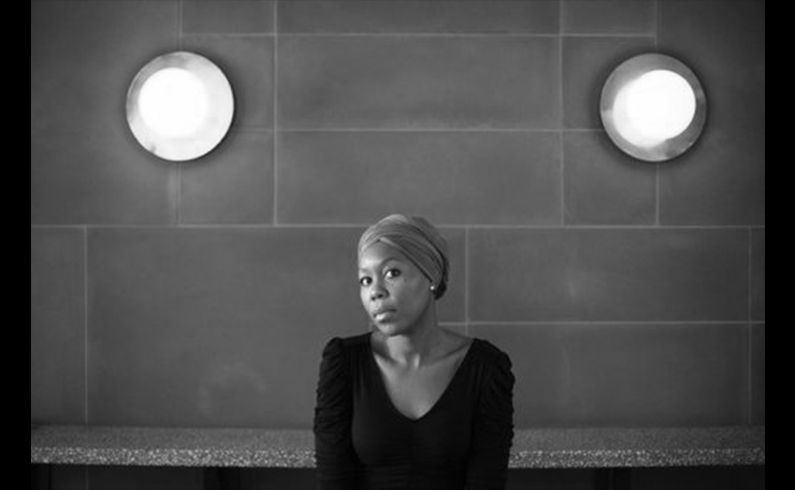Every refugee is an exile, Sisonke Msimang
02 Jul 2019

To mark World Refugee Day (20 June), PEN ce
PEN SA board member, Sisonke Msimang, has contributed a beautiful piece – first published by NZ Herald on 11 May 2019 – reflecting on her own experiences of exile.
This year marks twenty-five years since Nelson Mandela stood in front of a huge crowd and was inaugurated our first president. In this sense, it is as good a time as any to reflect on the meaning of home. This is a subject with significant meaning for refugees, and with special meaning on World Refugee Day.
I was born and grew up in exile. My father was a freedom fighter who left South Africa when he was twenty one, and only returned to the country when he was fifty-three. Our family lived in Zambia, Kenya, Canada and the United States, before finally going ‘home’ to a country in which we had never set foot.
As I reflect on the years we spent in search of home I am struck by how lucky we were. Although it was sometimes hard, I wouldn’t change a thing about my upbringing. In some ways we lived in an age of innocence. When I grew up there was no shame in my circumstance. I was a child who was born to parents who were unable to live in their country due to the politics of the day. The world embraced us. We were provided with shelter in Zambia and were granted asylum in Canada. Many other countries hosted South Africans and fought for their freedom. And yet today, the children of countries as diverse as Eritrea, Sudan, Congo, Syria, Afghanistan and Iraq are treated with contempt in the countries where they go to find peace. Authorities in too many countries treat children born in the wrong place and time – as I was – as though they are to blame for the wars and violence that wrack their countries.
Refugee was someone else’s word; a term used by the United Nations and by bureaucrats who needed to tick boxes. Refugee was a word hurled at us by the rare person who wanted to insult us. We never called ourselves by this name. Instead, we described ourselves as freedom fighters.
Today, no one uses the term exile to describe people who look like me. Black and brown people are uniformly called refugees or asylum-seekers. Yet as my family travelled the world in search of stability and freedom, we never called ourselves refugees – we were exiles.
Refugee was someone else’s word; a term used by the United Nations and by bureaucrats who needed to tick boxes. Refugee was a word hurled at us by the rare person who wanted to insult us. We never called ourselves by this name. Instead, we described ourselves as freedom fighters. We called ourselves a government-in-waiting. Our self-definitions were grand; clothed in the language of the future. We wore exile like a crown. We were proud of the courage it had taken us to leave and so exile rolled off our tongues with pride. In our mouths the ‘i’ at the centre of the word was long and drawn out. To be an exile was to be a person who was living in a state of hope and courage. There was sadness too ofcourse. Exile spoke of a world left behind and a new one yet to be made.
Still, long after the circumstances demanding our exile ended, my sisters and I remained convinced that we had been heroes of our story, central protagonists in the drama of a nation and a people fighting for dignity. This was the power of language our parents gifted us when they insisted on calling us exiles. They refused to accept an external definition of who we were that diminished them that or reframed them as objects rather than as active agents of their own destinies.
Every refugee is an exile and every exile, a refugee. There is no distinction. And yet, “exiles” get named while refugees remain nameless. Refugees blend into one another. Their lives are squashed into tents, their faces framed by sadness. Every refugee story follows one unrelenting arc; each refugee journey is one-directional. Refugees march in a silent line away from the places in the world that are poor and violent towards places where people have plenty. And somehow over the last thirty years refugees have come to mean trouble. While my story ended well – with full citizenship – for so many others around the world this is not the case.
Every refugee is an exile and every exile, a refugee. There is no distinction. And yet, “exiles” get named while refugees remain nameless. Refugees blend into one another.
I was lucky, my parents taught my sisters and I the power of naming ourselves. They gave us language – a word that was more powerful than the one we were handed by others. This capacity to insist on defining myself has been one of their greatest gifts to me. Every child ought to have the right to assert their identity and to have that assertion respected. Every child, ought to place to call home in the now – in the time before they find their place in the world.
Sisonke Msimang is the author of Always Another Country: a memoir of exile and home (Jonathan Ball, 2017) and The Resurrection of Winnie Mandela (Jonathan Ball, 2018).
